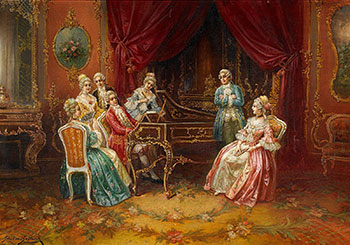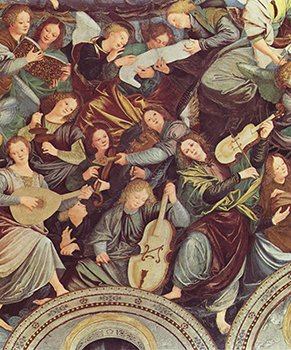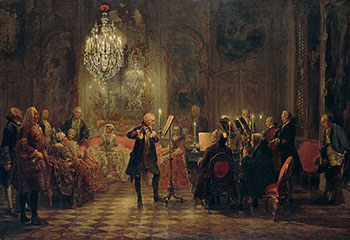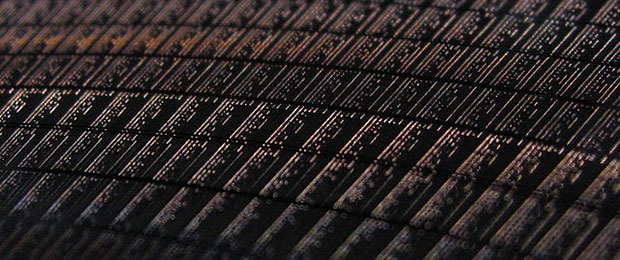"music science" entries

Music and tech are not enemies
The O'Reilly Radar Podcast: Zoe Keating on retaining control, making money, and remaining optimistic in the music industry.
Subscribe to the O’Reilly Radar Podcast to track the technologies and people that will shape our world in the years to come.
In this week’s episode of the Radar Podcast, author and entrepreneur Alistair Croll, who also co-chairs our Strata + Hadoop World conference, talks with cellist, composer, and performer Zoe Keating.
Keating talks about why she chooses to retain total control over her music as opposed to signing with a label, she shares her thoughts on the changing landscape of how artists get paid, and she talks about why she’s optimistic about the future of music.
Here are a few highlights from their conversation:
The digital tracking of music isn’t necessarily fully formed yet. I think we’re actually still in the infancy of what the industry is going to be like. We’ve had a great decade of disruption that has benefited artists like me and Amanda [Palmer]. I’m not sure that she or I could have had the kinds of careers we’ve had without this thing that has been bad for some other artists. I don’t think that things are fully realized yet. It’s still the case that the majority of the money is going to people other than the content creators.
I’m the only artist on the face of the earth who’s never made a video.
It’s almost like we need music futurists to try to envision the future of what might your life be like. How might it work? How might you make money? Just think about it in a free-form way without all the emotion attached to it, because often you’ve probably experienced numerous music conferences where it devolves into name calling.

Transforming the experience of sound and music
The O'Reilly Radar Podcast: Poppy Crum on sensory perception, algorithm design, and fundamental changes in music.
Subscribe to the O’Reilly Radar Podcast to track the technologies and people that will shape our world in the years to come.
In this week’s Radar Podcast, author and entrepreneur Alistair Croll, who also co-chairs our Strata + Hadoop World conference, talks music science with Poppy Crum, senior principal scientist at Dolby Laboratories and a consulting professor at Stanford.
Their wide-ranging discussion covers fundamental changes in the music industry, sensory perception and algorithm design, and what the future of music might look like.
Here are a few snippets from their conversation:
As we see transformations to the next stage of how we consume content, things that are becoming very prevalent are more and more metadata. More and more information about the sounds, information about personalization. You aren’t given the answer; you’re given information and opportunities to have a closer tie to the artist’s intent because more information about the artist’s intent can be captured so that when you actually experience the sound or the music, that information is there to dictate how it deals with your personal environment.
Today, Dolby Atmos and other technologies have transformed [how we experience sound in the cinema] quite substantially, where if I’m a mixer, I can take a sound and can mix now, say, instead of seven channels, I can mix 128 sounds, and each one of those sounds has a data stream associated with it. That data stream carries information. It’s not going to a particular set of speakers; it has x, y, z coordinates, it has information about the diffusivity of that sound. Read more…

Old-school DRM and new-school analytics
Piracy isn’t the threat; it’s centuries old. Music Science is the game changer.
Download our new free report “Music Science: How Data and Digital Content are Changing Music,” by Alistair Croll, to learn more about music, data, and music science.
 In researching how data is changing the music industry, I came across dozens of entertaining anecdotes. One of the recurring themes was music piracy. As I wrote in my previous post on music science, industry incumbents think of piracy as a relatively new phenomenon — as one executive told me, “vinyl was great DRM.”
In researching how data is changing the music industry, I came across dozens of entertaining anecdotes. One of the recurring themes was music piracy. As I wrote in my previous post on music science, industry incumbents think of piracy as a relatively new phenomenon — as one executive told me, “vinyl was great DRM.”
But the fight between protecting and copying content has gone on for a long time, and every new medium for music distribution has left someone feeling robbed. One of the first known cases of copy protection — and illegal copying — involved Mozart himself.
As a composer, Mozart’s music spread far and wide. But he was also a performer and wanted to be able to command a premium for playing in front of audiences. One way he ensured continued demand was through “flourishes,” or small additions to songs, which weren’t recorded in written music. While Mozart’s flourishes are lost to history, researchers have attempted to understand how his music might once have been played. This video shows classical pianist Christina Kobb demonstrating a 19th century technique.

Big data and the music industry: Where’s the romance?
The O'Reilly Radar Podcast: Amanda Palmer on music industry survival techniques.
Subscribe to the O’Reilly Radar Podcast to track the technologies and people that will shape our world in the years to come.
In this week’s Radar Podcast episode, author and entrepreneur Alistair Croll talks with musician and performer Amanda Palmer about the current state of the music industry and how she’s navigating her way through new platforms, crowdfunding, and an ever-increasing amount of data.
Here are a few snippets from their chat:
I’ve always approached every Internet platform and every Internet tool with the suspicion that it may not last, and that actually what’s very important is that the art and the relationships I’m building are authentic enough that even if the Internet disappeared tomorrow, or even if Facebook collapsed, or Twitter collapsed, or what have you, or all of our email went down, I’m not so reliant on the Internet itself that I couldn’t somehow piece things together.
I kind of had to come to terms with the fact that the machine still feeds what people listen to, whether it’s radio, or what gets licensed to films, or what music is playing when you walk into a shop. The ability of an artist to actually really get over that mountain, if you decide not to play the game, your hands are still pretty tied.
[Zoe Keating] was saying that an album for her is, she wants to make it all at one time and make one big statement and put it out, kind of like you would put out an opera. I’m deliberately trying to detach myself from that, and just say, ‘I wrote a song. I have this Patreon. I’m just going to put it out.’ At some point, maybe I will collect everything together so the mainstream media people of the world can have an Amanda Palmer record. But maybe that format really is dying. Read more…

The music science trifecta
Digital content, the Internet, and data science have changed the music industry.
Download our new free report “Music Science: How Data and Digital Content are Changing Music,” by Alistair Croll, to learn more about music, data, and music science.
Today’s music industry is the product of three things: digital content, the Internet, and data science. This trifecta has altered how we find, consume, and share music. How we got here makes for an interesting history lesson, and a cautionary tale for incumbents that wait too long to embrace data.
When music labels first began releasing music on compact disc in the early 1980s, it was a windfall for them. Publishers raked in the money as music fans upgraded their entire collections to the new format. However, those companies failed to see the threat to which they were exposing themselves.
Until that point, piracy hadn’t been a concern because copies just weren’t as good as the originals. To make a mixtape using an audio cassette recorder, a fan had to hunch over the radio for hours, finger poised atop the record button — and then copy the tracks stolen from the airwaves onto a new cassette for that special someone. So, the labels didn’t think to build protection into the CD music format. Some companies, such as Sony, controlled both the devices and the music labels, giving them a false belief that they could limit the spread of content in that format.
One reason piracy seemed so far-fetched was that nobody thought of computers as music devices. Apple Computer even promised Apple Records that it would never enter the music industry — and when it finally did, it launched a protracted legal battle that even led coders in Cupertino to label one of the Mac sound effects “Sosumi” (pronounced “so sue me”) as a shot across Apple Records’ legal bow. Read more…



